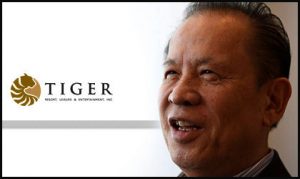Officials in the Philippines have reportedly dropped a perjury case that had been brought against the former Chairman of Japanese pachinko, slot and arcade games manufacturer Universal Entertainment Corporation, Kazuo Okada (pictured), due to a lack of evidence.
Careful consideration:
According to Thursday reports from GGRAsia and the Manila Standard newspaper, the four-count action had been filed in November after the 76-year-old casino magnate was alleged to have made contradictory statements in a Nevada courtroom regarding his control of a firm known as Okada Holdings Limited.
Preceding removal:
Okada was reportedly removed as Chairman of Tokyo-headquartered Universal Entertainment Corporation and its casino-operating Tiger Resort Leisure and Entertainment Incorporated subsidiary in 2017 amid accusations that he had illegally transferred around $3 million in company funds and improperly awarded a major machine supply contract to an enterprise he owned.
Ownership confusion:
In attempting to clear his name in these matters, Okada was alleged to have erroneously told a district court in Las Vegas that he still retained a 67.9% stake in Okada Holdings Limited, which in turn is a majority shareholder in Universal Entertainment Corporation as well as the firm behind the Philippines’ giant Okada Manila integrated casino resort, Tiger Resort Leisure and Entertainment Incorporated.
Contradictory contention:
However, the Manila Standard reported that the perjury lawsuit initiated by Kenji Sugiyama from Tiger Resort Leisure and Entertainment Incorporated had claimed that Okada had previously told the Paranaque Regional Trial Court in the Philippines that he had lost control of Hong Kong-registered Okada Holdings Limited.
Official withdrawal:
GGRAsia reported that the twelve-page dismissal opinion was issued by Francisco Salomon, a senior assistant prosecutor with the Manila City Prosecutor’s Office, on March 5 and had cited a ‘lack of sufficient evidence and merit.’ This decision was sanctioned by the acting city prosecutor for Manila, Joselito Obejas, and had moreover described the alleged contradictory statements as being the fault of Okada’s legal and not the man himself.
issued by Francisco Salomon, a senior assistant prosecutor with the Manila City Prosecutor’s Office, on March 5 and had cited a ‘lack of sufficient evidence and merit.’ This decision was sanctioned by the acting city prosecutor for Manila, Joselito Obejas, and had moreover described the alleged contradictory statements as being the fault of Okada’s legal and not the man himself.
Salomon’s decision read…
“A conviction of perjury cannot be sustained merely upon the contradictory sworn statements of the accused. The prosecution must prove which of the two statements is false and must show the statement to be false by other evidence than the contradicting statement.”



